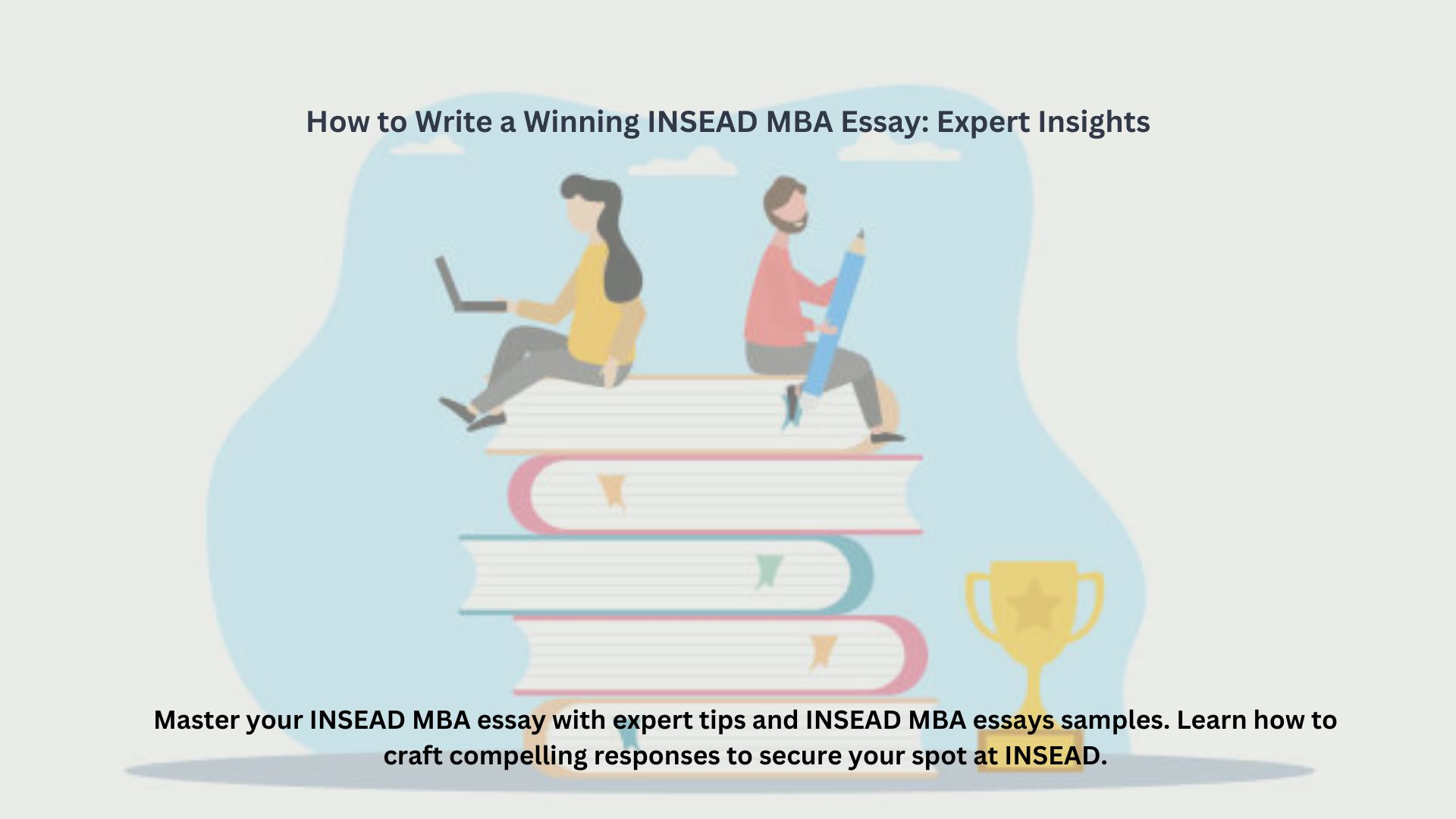
The INSEAD MBA program is one of the most prestigious business schools worldwide, known for its diverse class and rigorous curriculum. The INSEAD MBA essay is a crucial component of your application, offering you the opportunity to showcase your personality, career aspirations, and leadership potential. This guide provides expert insights on crafting compelling INSEAD MBA essays, with useful INSEAD MBA essays samples to help you stand out.
Understanding the INSEAD MBA Essay Requirements
Before you begin writing, it’s essential to understand the specific requirements of INSEAD’s MBA essays. INSEAD requires multiple essays covering personal and professional experiences, motivation, and future goals. These essays provide the admissions committee with a holistic view of your personality, leadership qualities, and career trajectory.
Key Aspects of INSEAD MBA Essays
- Motivation Essays: These essays focus on why you want to pursue an MBA at INSEAD and how the program aligns with your career goals.
- Job Description Essays: You need to elaborate on your work experience, challenges faced, and leadership experiences.
- Optional Essays: If you have any gaps in education or employment, this is where you address them.
How to Structure Your INSEAD MBA Essay Effectively

1. Start with a Strong Introduction
The opening lines of your INSEAD MBA essay should grab attention while establishing the main theme of your response. Begin with a personal anecdote, a thought-provoking question, or a compelling statement about your motivation for applying.
For example, instead of stating, “I have always been passionate about leadership,” try, “Leading a team of 20 professionals across three continents taught me that leadership is more about collaboration than authority.”
2. Provide Clear and Concise Responses
INSEAD MBA essays have word limits, making it crucial to be precise and avoid unnecessary details. Each sentence should add value to your story. Use active voice and avoid jargon or overly complex sentences.
3. Showcase Your Unique Experiences
To differentiate your essay from thousands of applicants, highlight unique experiences that shaped your personal and professional growth. If you faced challenges, explain how you overcame them and what you learned.
For example, instead of simply listing responsibilities, discuss how you added value to your organization. Did you lead a project that resulted in significant business growth? Did you implement a new strategy that transformed team dynamics?
4. Align Your Goals with INSEAD’s Offerings
The admissions committee wants to know why INSEAD is the right choice for you. Research INSEAD’s programs, faculty, and global exposure to tailor your essay accordingly. Mention specific courses, clubs, or opportunities at INSEAD that align with your aspirations.
For instance, if you are interested in entrepreneurship, mention how INSEAD’s Entrepreneurship Club or the Startup Bootcamp will help you achieve your long-term goals.
5. Demonstrate Cultural Awareness
INSEAD values diversity and an international perspective. Emphasize experiences where you worked with multicultural teams, adapted to new environments, or learned from different cultures.
For example, if you worked on a global project, explain how collaborating with international teams improved your leadership and communication skills.
6. Be Authentic and Reflective
Avoid exaggerating achievements or using generic statements. Authenticity is key to making your essay compelling. Show self-awareness by discussing challenges, failures, and the lessons you learned.
For example, if you faced a career setback, describe how you turned it into a growth opportunity instead of merely stating the setback.
Common Mistakes to Avoid in INSEAD MBA Essays
- Lack of Structure: Ensure your essay has a clear beginning, middle, and end.
- Being Too Generic: Avoid vague statements like “INSEAD’s global reputation attracts me.” Instead, be specific about what aspects of INSEAD appeal to you.
- Ignoring the Word Limit: Adhere to the specified word count to demonstrate conciseness and discipline.
- Grammatical Errors: Proofread your essay multiple times or seek feedback to eliminate errors.
Sample INSEAD MBA Essay Excerpt

“Leading a team through an unexpected crisis taught me resilience, adaptability, and the value of clear communication. While managing a product launch, unforeseen supply chain disruptions threatened our project timeline. Instead of panicking, I collaborated with cross-functional teams across Asia and Europe, realigned our strategy, and successfully delivered the product ahead of schedule. This experience reinforced my leadership skills and inspired me to pursue an MBA at INSEAD, where I can further refine my ability to lead in dynamic, global environments.”
Final Tips for Writing a Winning INSEAD MBA Essay
- Understand Yourself: Reflect on your strengths, weaknesses, and career aspirations before you start writing.
- Tell a Story: Instead of listing achievements, narrate experiences that highlight your leadership and problem-solving skills.
- Customize Your Essay: Research INSEAD thoroughly and tailor your essay to align with its values and curriculum.
- Seek Feedback: Have mentors or professionals review your essay to ensure clarity and impact.
- Edit and Revise: Writing is rewriting. Refine your essay until it’s clear, compelling, and free of errors.
Conclusion
Writing a winning INSEAD MBA essay requires introspection, clarity, and authenticity. By structuring your essay effectively, showcasing unique experiences, and aligning your goals with INSEAD’s values, you can create a compelling application that stands out. Use INSEAD MBA essays samples as inspiration but ensure your essay reflects your unique story and aspirations.
A well-crafted INSEAD MBA essay can be the key to securing your place at one of the world’s top business schools. Start early, be authentic, and let your story shine!